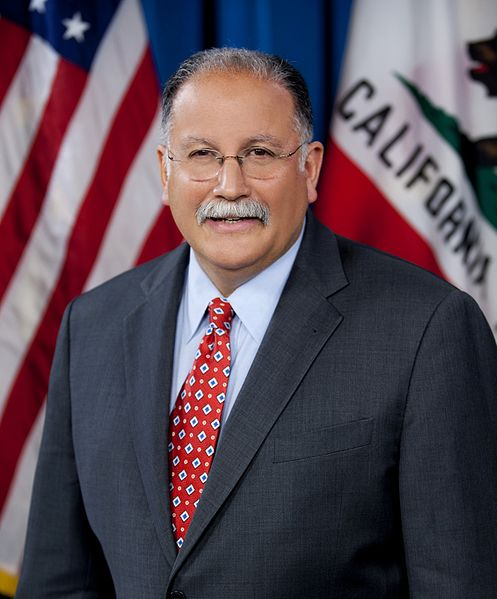Governor Newsom Vetoes Controversial High School Ethnic Studies Bill

Photo Courtesy of California State Assembly
Democratic assemblymember Jose Medina represents California’s 61st Assembly District. He proposed the ethnic studies bill to the California Assembly Education Committee in March 2019. The bill would have made ethnic studies a required course for high school graduation.
Gov. Gavin Newsom vetoed the controversial Assembly Bill 331 on Sept 30. that would have required California high school students to take at least one semester of ethnic studies to graduate.
While Newsom expressed support in his veto, he said that he ultimately rejected the bill because there was “much uncertainty” about the model curriculum’s content. He explained that the ethnic studies course curriculum needed to be further revised so it “achieves balance, fairness, and is inclusive of all communities.”
Assemblyman Jose Medina, the bill’s lead author, responded to Newsom’s veto in a statement where he called it a “missed opportunity” and a “disservice” to students who supported the bill. Medina promised to introduce the bill again next year for the third time.
“In order to build racial justice in this state and country, all of our students need to learn the real history of America — and that history includes the diverse experiences and perspectives of people of color,” Medina said in a statement.
Newsom was praised by a number of Jewish organizations that had criticized the ethnic studies model curriculum early on for being politically biased and not emphasizing anti-Semitism enough.
“Thank you Governor @GavinNewsom for your courageous and important veto of a controversial and deeply flawed ethnic studies curriculum,” the Simon Wiesenthal Center, a Jewish human rights organization, said in a Tweet.
Thank you Governor @GavinNewsom for your courageous and important veto of a controversial and deeply flawed ethnic studies curriculum. https://t.co/ZOpqJQG0CO
— Simon Wiesenthal Center (@simonwiesenthal) October 1, 2020
On the other hand, the veto drew disappointment from ethnic studies supporters like contemporary issues teacher Natasha Schottland, who hoped that the bill would promote more diversity and deeper understanding of ethnic minorities and cultures in the United States.
“I think the impact of that bill [veto] is not going to be very impactful at Portola…because we are sort of going to do what we always do, which is teach about disenfranchised groups, about different ethnic groups, about identity,” Schottland said. “What I’m concerned about is schools that don’t have that outlook. And maybe those aren’t in Irvine, maybe those aren’t in parts of California, but it’s essential to [understand] the way in which history has steeped in racism and classism.”
Your donation will support the student journalists of Portola High School. Your contribution will allow us to purchase equipment and cover our annual website hosting costs.

Celine Lee is this year’s co-editor-in-chief for her third and final year on the Pilot! She is beyond excited to make the most out of her senior year...



